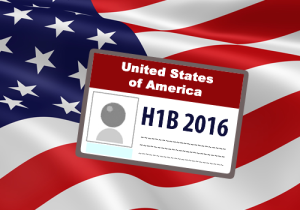India Files Complaint Against USA:
Complaint Over Special Fees and H-1B Cap
India is alleging the United States is engaged in unfair trade practices in the World Trade Organization. The suit is on two bases: the H-1B cap of 65,000 and 20,000 and the enhanced fees that Congress recently slapped on large companies with over 50% of their employees on H-1B or L-1 visas. The case is at the World Trade Organization because India is alleging that the United States has violated trade rules with recently implemented special fees and with the 65,000 cap. The World Trade Organization is the forum where unfair trade restrictions are decided as unfair or fair.
The Cap
The H-1B visa’s lifespan has been governed by a cap, which has historically been larger but has settled in at 65,000 for over a decade. A supplementary 20,000 visas were added for US Master’s graduates. The cap is not exactly 65,000. It is even less, when considering special agreements that the US has with Chile and Singapore. The trade agreement stipulates that 1,400 H-1B visas are allocated for Chilean nationals and 5,4000 H-1B visas belong to nationals of Singapore. For beneficiary nationals of other countries, that means the cap is actually 58,200. Additionally, that is only the cap. A cap is a ceiling not a floor. The US is not required to grant 65,000 cap-subject H-1B visas. It can grant fewer than that.
The US has two arguments against the cap and special allocation of visas for Chile and Singapore. The first is the recent creation of the 20,000 visas for US Master’s graduates. The second is cap-exempt visas, which are reserved for academic, research, and sometimes medical purposes.
Enhanced Visa Fees
In December 2015, an Omnibus Bill was passed that contained some financially harsh provisions against large firms that employ H-1B and L-1 visa holders. While much of the focus in the bill’s germination stage focused on Syrian refugees and the Visa Waiver Program, provisions against these large firms snuck in and have been instituted. For firms that have at least 50 employees, of whom 50% are in H-1B or L-1 status, there is an additional $4,000 fee for every H-1B and $4,500 L-1 initial and extension application. The previous fee of $2,000 was sui generis.
H-1B applications can be expensive for employers. A base filing fee of $325 is required for every application. Depending on the circumstances of the application, a Fraud Prevention and Detection fee of $500 is applied. An ACWIA fee of $750 or $1,500 may be required. H-1B extension and change of status applications are taking such an excruciatingly long time to adjudicate that premium processing is being constructively required. Premium processing requires $1,225. These fees accumulate, especially for multiple workers, escalating fees for every application.
The complaint at the World Trade Organization alleges that this enhanced visa fee is an unfair trade restriction. It is expected that the World Trade Organization will take a year to make a decision at least.
